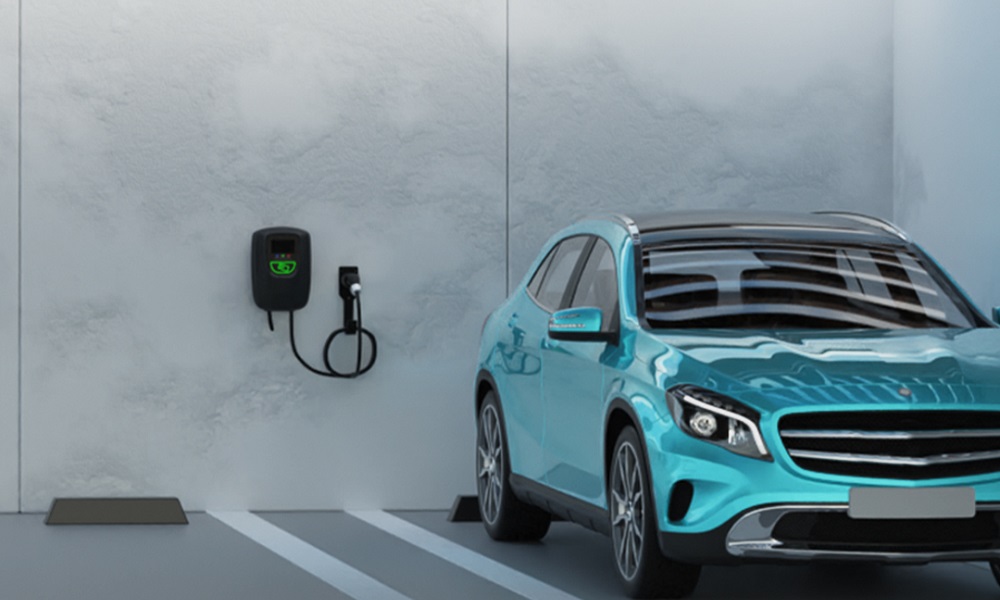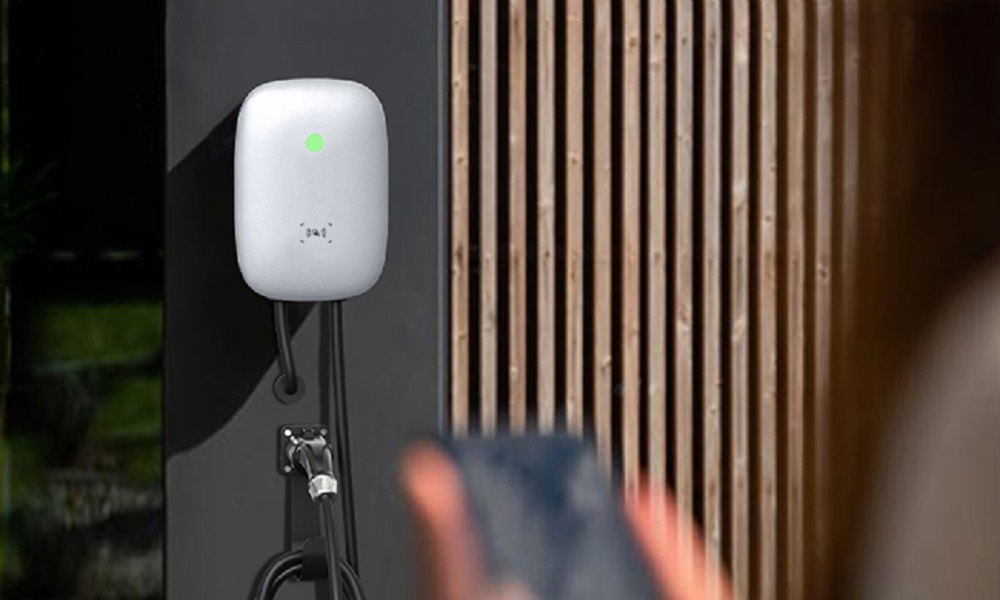
To realize people's freedom to use Electric Vehicle Supply Equipment (EVSE) chargers at home, electric vehicle (EV) charger wholesalers continue to innovate home EV charging solutions. In recent years, to encourage individuals and companies to purchase electric vehicles and chargers, regional governments have launched various incentive policies to promote the development of electric cars.
In this blog, we'll explore the types of home charging stations, charging speeds, and additional features and understand how Joint customizes electric car charging solutions tailored to your needs.
Choosing the Right EV Charging Solution
Perhaps when people want to own a charger, most would search on Google for "best home electric car charger." However, the best approach is to search for "how to choose the most suitable charger for my electric car." A suitable charging station is crucial in establishing a convenient home charging infrastructure. Distributors sell various electric car chargers with different power, charging speeds, and charging standards. Therefore, it is essential to have a basic understanding of electric car chargers before purchasing a home electric car charger.
What are the common types of electric vehicle chargers?
Common electric car chargers include AC electric car chargers (Level 1 electric car chargers, Level 2 electric car chargers) and DC electric car chargers (Level 3 electric car chargers). As high-power electric car charging equipment, DC Fast Chargers (DCFC) can charge electric cars to full capacity in minutes and is the fastest electric vehicle charging solution.However, DC fast chargers come at a higher cost than Level 1 and Level 2 electric car chargers and are more suitable for installation on highways or electric car charging stations.
As commonly used EVSE home chargers, Level 1 and Level 2 electric car chargers have various advantages. Here is some basic knowledge about Level 1 and Level 2 electric car chargers.
What is a Level 1 Portable Electric Vehicle Charger?
Level 1 electric vehicle chargers are designed for simplicity and accessibility. These chargers operate on standard 120-volt household power outlets, providing a convenient solution for users who prioritize ease of use over rapid charging speeds. The charging connector for Level 1 chargers typically features a standard three-prong plug that easily fits into common household outlets. On the vehicle side, the SAE J1772 connector is commonly used, providing a standardized connection across many electric vehicle models.
The usage of a Level 1 charger is straightforward - users simply plug the charger into a standard outlet and connect the J1772 connector to their electric vehicle. While the charging speed is relatively slow, ranging from 2 to 5 miles of added range per hour, Level 1 chargers are ideal for residential settings where overnight charging is sufficient and practical.

What is a Level 2 Home Electric Vehicle Charger?
Compared to Level 1 chargers, Level 2 chargers represent a more powerful and faster charging solution. Level 2 chargers operate on a 240-volt power supply, significantly increasing the charging speed to approximately 10 to 60 miles of added range per hour. For example, Joint’s fastest home level2 electric car charger has a power of 22kw.
L2 chargers are commonly installed in residential settings and public charging stations, providing a versatile charging option for a wide range of electric vehicles. The charging connector for Level 2 chargers is typically the J1772 connector, ensuring compatibility with various electric vehicle models. Unlike Level 1 chargers, Level 2 installations often require professional setup and access to a 240-volt power supply. This additional power enables electric vehicle owners to enjoy faster charging turnaround times, making Level 2 chargers the preferred choice for those seeking a more efficient and multifunctional home charging solution.
Unlike commercial electric vehicle chargers, home chargers focus on convenience and versatility. An LED display is not a mandatory feature for Level 2 electric vehicle chargers. The target audience for Level 2 electric vehicle chargers is electric vehicle drivers with one or two cars who desire a charging device faster than a Level 1 charger. Therefore, Level 2 electric vehicle chargers can be used with household voltage, offering a charging speed different from Level 1 chargers. In the United States, the charging speed of Level 2 electric vehicle chargers typically ranges from 10 to 60 miles per hour, approximately 4 to 30 times faster than Level 1 electric vehicle chargers, providing a faster charging efficiency.
This additional power allows electric vehicle owners to enjoy quicker charging turnaround times, making Level 2 chargers the preferred choice for those seeking a more efficient and versatile residential charging solution.
Consider additional features for home EV chargers
Smart Charging Feature
Smart charging aims to make the charging of electric vehicles more intelligent, efficient, and convenient. Here are key features and aspects of smart charging in EV chargers:
Remote Monitoring and Control: Smart charging systems allow users to monitor and control the charging process remotely. Through mobile apps or online platforms, users can check the status of their vehicle's charge, start or stop charging, and receive real-time notifications.
Dynamic Load Management: Smart chargers can adjust charging rates based on the overall electricity demand on the grid. This helps to avoid overloading the grid during peak usage times and ensures a more balanced distribution of electrical load.
Energy Management and Optimization: Smart chargers can optimize the use of renewable energy sources and take advantage of off-peak electricity rates. They may have the capability to schedule charging during times when electricity is more abundant and cheaper, contributing to cost savings and reducing the environmental impact.
Grid Integration: Smart charging systems can communicate with the electrical grid to receive signals about grid conditions and electricity prices. This bidirectional communication allows the charger to adapt its charging behavior based on grid conditions and demand-response signals.
User Authentication and Access Control: Smart chargers often feature user authentication mechanisms, such as RFID cards, mobile apps, or PIN codes. This ensures that only authorized users can access and use the charging station.
Data Analytics: The collection and analysis of data from smart charging stations provide valuable insights into charging patterns, user behavior, and overall system performance. This information can be used to optimize charging infrastructure planning and management.

Multiple charging ports
Some Level 2 residential electric car chargers are designed with multiple charging ports, enabling them to charge multiple EVs simultaneously, increasing the charging stations' efficiency. The most common type of multiple charging port is a dual EV charger, such as the Joint EVCD2, which has two EV charging guns and can charge two EVs simultaneously.
Multiple Connectivity
Modern Level 2 residential electric vehicle charging stations usually have good connectivity and support network management functions, which allow them to connect to the EV charger in various ways, such as WIFI, Bluetooth, 4G, LAN, and even a smart app.
Plug and Charge:
"Plug and Charge" is one of the core concepts of ISO 15118. The "Plug and Charge" function allows electric vehicles to establish a secure communication link with the charging station automatically when they are physically connected. Plug and Charge-enabled home electric vehicles do not require an identification card, simplifying the charging process for the user.
Home EVSE Charging Solution Provider - Joint
Home EV charging solutions are one of the keys to meeting people's charging needs. Joint's 22kW home EV charging solution features charging appointments, dynamic load balancing, and fault page display, which helps provide a convenient and smart charging experience. As a renowned EV charger manufacturer, Joint is at the forefront of EV charging and is committed to providing EV drivers with versatile and future-proof charging solutions.
Post time: Jan-22-2024
